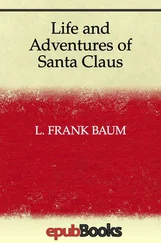Charles Dickens - Life And Adventures Of Martin Chuzzlewit
Здесь есть возможность читать онлайн «Charles Dickens - Life And Adventures Of Martin Chuzzlewit» весь текст электронной книги совершенно бесплатно (целиком полную версию без сокращений). В некоторых случаях можно слушать аудио, скачать через торрент в формате fb2 и присутствует краткое содержание. Жанр: Классическая проза, на английском языке. Описание произведения, (предисловие) а так же отзывы посетителей доступны на портале библиотеки ЛибКат.
- Название:Life And Adventures Of Martin Chuzzlewit
- Автор:
- Жанр:
- Год:неизвестен
- ISBN:нет данных
- Рейтинг книги:5 / 5. Голосов: 1
-
Избранное:Добавить в избранное
- Отзывы:
-
Ваша оценка:
- 100
- 1
- 2
- 3
- 4
- 5
Life And Adventures Of Martin Chuzzlewit: краткое содержание, описание и аннотация
Предлагаем к чтению аннотацию, описание, краткое содержание или предисловие (зависит от того, что написал сам автор книги «Life And Adventures Of Martin Chuzzlewit»). Если вы не нашли необходимую информацию о книге — напишите в комментариях, мы постараемся отыскать её.
Life And Adventures Of Martin Chuzzlewit — читать онлайн бесплатно полную книгу (весь текст) целиком
Ниже представлен текст книги, разбитый по страницам. Система сохранения места последней прочитанной страницы, позволяет с удобством читать онлайн бесплатно книгу «Life And Adventures Of Martin Chuzzlewit», без необходимости каждый раз заново искать на чём Вы остановились. Поставьте закладку, и сможете в любой момент перейти на страницу, на которой закончили чтение.
Интервал:
Закладка:
They encountered more weeds in the bar-room, some of whom (being thirsty souls as well as dirty) were pretty stale in one sense, and pretty fresh in another. Among them was a gentleman who, as Martin gathered from the conversation that took place over the bitter, started that afternoon for the Far West on a six months” business tour, and who, as his outfit and equipment for this journey, had just such another shiny hat and just such another little pale valise as had composed the luggage of the gentleman who came from England in the Screw.
They were walking back very leisurely; Martin arm-in-arm with Mr Jefferson Brick, and the major and the colonel side-by-side before them; when, as they came within a house or two of the major's residence, they heard a bell ringing violently. The instant this sound struck upon their ears, the colonel and the major darted off, dashed up the steps and in at the street-door (which stood ajar) like lunatics; while Mr Jefferson Brick, detaching his arm from Martin's, made a precipitate dive in the same direction, and vanished also.
“Good Heaven!” thought Martin. “The premises are on fire! It was an alarm bell!”
But there was no smoke to be seen, nor any flame, nor was there any smell of fire. As Martin faltered on the pavement, three more gentlemen, with horror and agitation depicted in their faces, came plunging wildly round the street corner; jostled each other on the steps; struggled for an instant; and rushed into the house, a confused heap of arms and legs. Unable to bear it any longer, Martin followed. Even in his rapid progress he was run down, thrust aside, and passed, by two more gentlemen, stark mad, as it appeared, with fierce excitement.
“Where is it?” cried Martin, breathlessly, to a negro whom he encountered in the passage.
“In a eatin room, sa. Kernell, sa, him kep a seat “side himself, sa.”
“A seat!” cried Martin.
“For a dinnar, sa.”
Martin started at him for a moment, and burst into a hearty laugh; to which the negro, out of his natural good humour and desire to please, so heartily responded, that his teeth shone like a gleam of light. “You're the pleasantest fellow I have seen yet,” said Martin clapping him on the back, “and give me a better appetite than bitters.”
With this sentiment he walked into the dining-room and slipped into a chair next the colonel, which that gentleman (by this time nearly through his dinner) had turned down in reserve for him, with its back against the table.
It was a numerous company—eighteen or twenty perhaps. Of these some five or six were ladies, who sat wedged together in a little phalanx by themselves. All the knives and forks were working away at a rate that was quite alarming; very few words were spoken; and everybody seemed to eat his utmost in self-defence, as if a famine were expected to set in before breakfast time to-morrow morning, and it had become high time to assert the first law of nature. The poultry, which may perhaps be considered to have formed the staple of the entertainment—for there was a turkey at the top, a pair of ducks at the bottom, and two fowls in the middle—disappeared as rapidly as if every bird had had the use of its wings, and had flown in desperation down a human throat. The oysters, stewed and pickled, leaped from their capacious reservoirs, and slid by scores into the mouths of the assembly. The sharpest pickles vanished, whole cucumbers at once, like sugar-plums, and no man winked his eye. Great heaps of indigestible matter melted away as ice before the sun. It was a solemn and an awful thing to see. Dyspeptic individuals bolted their food in wedges; feeding, not themselves, but broods of nightmares, who were continually standing at livery within them. Spare men, with lank and rigid cheeks, came out unsatisfied from the destruction of heavy dishes, and glared with watchful eyes upon the pastry. What Mrs Pawkins felt each day at dinner-time is hidden from all human knowledge. But she had one comfort. It was very soon over.
When the colonel had finished his dinner, which event took place while Martin, who had sent his plate for some turkey, was waiting to begin, he asked him what he thought of the boarders, who were from all parts of the Union, and whether he would like to know any particulars concerning them.
“Pray,” said Martin, “who is that sickly little girl opposite, with the tight round eyes? I don't see anybody here, who looks like her mother, or who seems to have charge of her.”
“Do you mean the matron in blue, sir?” asked the colonel, with emphasis. “That is Mrs Jefferson Brick, sir.”
“No, no,” said Martin, “I mean the little girl, like a doll; directly opposite.”
“Well, sir!” cried the colonel. “THAT is Mrs Jefferson Brick.”
Martin glanced at the colonel's face, but he was quite serious.
“Bless my soul! I suppose there will be a young Brick then, one of these days?” said Martin.
“There are two young Bricks already, sir,” returned the colonel.
The matron looked so uncommonly like a child herself, that Martin could not help saying as much. “Yes, sir,” returned the colonel, “but some institutions develop human natur; others re—tard it.”
“Jefferson Brick,” he observed after a short silence, in commendation of his correspondent, “is one of the most remarkable men in our country, sir!”
This had passed almost in a whisper, for the distinguished gentleman alluded to sat on Martin's other hand.
“Pray, Mr Brick,” said Martin, turning to him, and asking a question more for conversation's sake than from any feeling of interest in its subject, “who is that;” he was going to say “young” but thought it prudent to eschew the word—'that very short gentleman yonder, with the red nose?”
“That is Pro—fessor Mullit, sir,” replied Jefferson.
“May I ask what he is professor of?” asked Martin.
“Of education, sir,” said Jefferson Brick.
“A sort of schoolmaster, possibly?” Martin ventured to observe.
“He is a man of fine moral elements, sir, and not commonly endowed,” said the war correspondent. “He felt it necessary, at the last election for President, to repudiate and denounce his father, who voted on the wrong interest. He has since written some powerful pamphlets, under the signature of “Suturb,” or Brutus reversed. He is one of the most remarkable men in our country, sir.”
“There seem to be plenty of “em,” thought Martin, “at any rate.”
Pursuing his inquiries Martin found that there were no fewer than four majors present, two colonels, one general, and a captain, so that he could not help thinking how strongly officered the American militia must be; and wondering very much whether the officers commanded each other; or if they did not, where on earth the privates came from. There seemed to be no man there without a title; for those who had not attained to military honours were either doctors, professors, or reverends. Three very hard and disagreeable gentlemen were on missions from neighbouring States; one on monetary affairs, one on political, one on sectarian. Among the ladies, there were Mrs Pawkins, who was very straight, bony, and silent; and a wiry-faced old damsel, who held strong sentiments touching the rights of women, and had diffused the same in lectures; but the rest were strangely devoid of individual traits of character, insomuch that any one of them might have changed minds with the other, and nobody would have found it out. These, by the way, were the only members of the party who did not appear to be among the most remarkable people in the country.
Several of the gentlemen got up, one by one, and walked off as they swallowed their last morsel; pausing generally by the stove for a minute or so to refresh themselves at the brass spittoons. A few sedentary characters, however, remained at table full a quarter of an hour, and did not rise until the ladies rose, when all stood up.
Читать дальшеИнтервал:
Закладка:
Похожие книги на «Life And Adventures Of Martin Chuzzlewit»
Представляем Вашему вниманию похожие книги на «Life And Adventures Of Martin Chuzzlewit» списком для выбора. Мы отобрали схожую по названию и смыслу литературу в надежде предоставить читателям больше вариантов отыскать новые, интересные, ещё непрочитанные произведения.
Обсуждение, отзывы о книге «Life And Adventures Of Martin Chuzzlewit» и просто собственные мнения читателей. Оставьте ваши комментарии, напишите, что Вы думаете о произведении, его смысле или главных героях. Укажите что конкретно понравилось, а что нет, и почему Вы так считаете.









